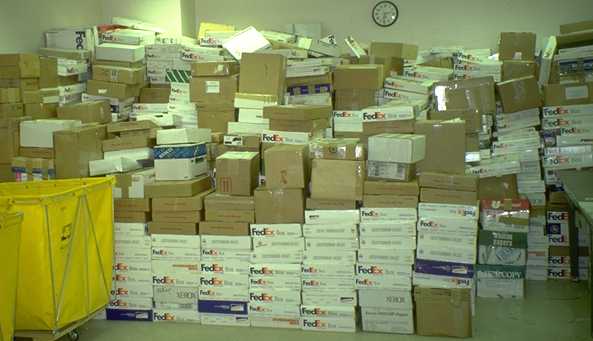In an average week, our Global Development and Population Program receives anywhere from one to a dozen inquiries by phone and email. It’s my job to reply to them, and it’s honestly one of my favorite things to do.
Many, of course, are from non-profit organizations hoping to start a conversation about funding. Mixed in with those inquiries, we might get a note from a doctoral researcher in Ghana looking for a donation of a computer or a meeting request from a startup business collecting unused medical supplies to distribute in impoverished areas. There are also many people out there, retirees or simply people with extra time or money that they want to share, hatching imaginative ideas to tackle poverty, end violence against women, reform education, or solve any number of the world’s problems.
A couple months ago, during my commute, I listened to NPR’s Terry Gross interview David Remnick, the current editor of the New Yorker magazine, on her radio show, Fresh Air. At the end of the interview, he mentioned his early query letters that he sent as a young writer in his twenties, and talked about one reply he had received from the legendary William Shawn, his predecessor as editor of the New Yorker:
REMNICK: The answer was no (laughter). But I never forgot the time that was taken to write a cogent, short note about why not. And I also remember when I submitted my first piece to The New Yorker, which was happily accepted by Gottlieb—by Bob Gottlieb—he answered that day—that night. And I’ll never forget that. And I know in my heart that I’m falling short all the time in a million different ways, but I try to answer emails, letters, phone calls because I know not only is it the right human thing to do, I think, but also, once in a blue moon, it’s going to pay off. Once in a blue moon, you are going to get a short story, a suggestion, an idea that’s going to find its way into The New Yorker and be something or someone brilliant. And that’s part of the job. And it’s a delightful one.
He expressed perfectly how I feel every time I answer an email or phone call. It’s a privilege to be given the responsibility to talk with people who are quite literally all over the world and hear about their amazing projects.
Both as a writer, my avocation, and from the start of my career in nonprofits decades ago, I’ve experienced rejection letters. At one of my first nonprofit jobs in the late 1980s, inquiring about the status of submitted grant and fellowship applications fell to me. Email and the internet had not taken over communications, and grant applications were stacks of paper with as many as twenty photocopies and ink signatures.
The National Institutes of Health Loading Dock on the day of a grant application deadline, circa 2001. (Photo Credit: Science Careers, The NIH R01 Toolkit)
I helped young scientists navigate the complicated application process, and I shepherded their ideas through a labyrinth of different formats, requirements, and rules, mailing a box of paper registered mail to a funding organization. Every grants management conference back then seemed to include a presentation by a representative of the National Institutes of Health with the photo above of their loading dock on the day of a grant deadline. The average time from submission of their grant application to award notice was identical to pregnancy—nine months of hopeful anticipation.
Somewhere toward the end of the second trimester, the funders would entertain telephone calls from the expectant scientists. The grants management office, where I worked, had an established rapport with our counterparts in the government and at major donors, so often making that phone call became our job. We were two sides of the same coin and spoke the same language. So I would pick up the phone to find out how things were going, and share with the scientists whatever news I could glean.
Now the coin has flipped, and it’s my turn to respond with candor and kindness. I know from my past, sometimes all you want is a thoughtful response. Actually, sometimes all you want is to know that your message made it out in the world, and that someone’s ears heard it or eyes saw it.
The reward, beyond the chance to hear many interesting stories and ideas, is the feedback I’ve gotten. Even when my response is that we cannot provide support, most often simply because we’re focusing on other areas of work, I often hear back “Thank you.” I’ve heard thanks for answering the phone, thanks for replying, and thanks for reading the email at all. Also, sometimes I get to reply that I will pass along an idea to the people on our team who do decide on making grants. As David Remnick said, “And that’s part of the job. And it’s a delightful one.”



